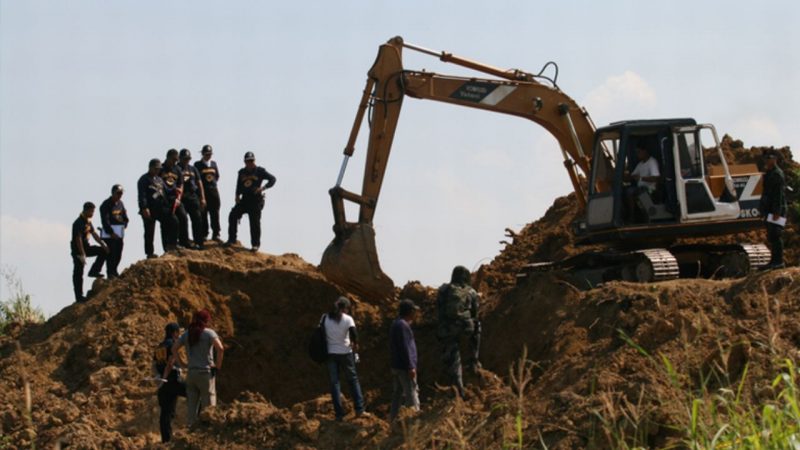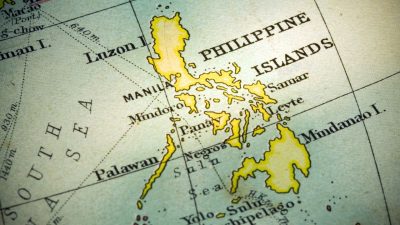On December 4, 2009, the shadows of tragedy and political turmoil cast a somber tone over the Philippines as President Gloria Macapagal-Arroyo declared Martial Law in Maguindanao province.
This drastic measure came in the aftermath of the infamous Maguindanao massacre, a heinous incident that shook the nation to its core.
The grim proclamation, officially termed Proclamation No. 1959, was an urgent response to the unfolding crisis. The President also suspended the writ of habeas corpus in Maguindanao, signifying a suspension of legal protections against unlawful detention.
The Martial Law declaration followed closely on the heels of a significant military deployment to the province.
Government troops, in a bold move, raided the armories of the influential Ampatuan clan, implicating them in the massacre.
The Ampatuans were accused of orchestrating the brutal slaying of 58 individuals, including women from the rival Mangudadatu clan, human rights advocates, and a staggering 31 media workers.
This tragic event marked a dark chapter in the nation’s history, standing as the worst incident of political violence and the gravest loss of life among media professionals in a single day.
The Maguindanao massacre unfolded on the morning of November 23, 2009, in the town of Ampatuan on the island of Mindanao.
The victims, en route to file a certificate of candidacy for Esmael Mangudadatu, vice mayor of Buluan town, were abducted and mercilessly murdered.
Mangudadatu was challenging Andal Ampatuan, Jr., the mayor of Datu Unsay town and son of the incumbent Maguindanao governor, Andal Ampatuan, Sr.
President Macapagal-Arroyo, faced with the gravity of the situation, lifted the state of Martial Law in Maguindanao on December 12 of the same year. The scars of the massacre, however, lingered as a painful reminder of a tragic episode in Filipino history.
PROCLAMATION NO. 1959, s. 2009
PROCLAIMING A STATE OF MARTIAL LAW AND
SUSPENDING THE PRIVILEGE OF THE WRIT OF
HABEAS CORPUS IN THE PROVINCE OF
MAGUINDANAO, EXCEPT FOR CERTAIN AREAS
WHEREAS, Proclamation No. 1946 was issued on 24 November 2009 declaring a state of emergency in the provinces of Maguindanao, Sultan Kudarat, and the City of Cotabato to prevent and suppress lawless violence in the aforesaid areas;
WHEREAS, Section 18, Art. VII of the Constitution provides that “x x x In case of invasion or rebellion, when the public safety requires it, (the President) may, for a period not exceeding sixty days, suspend the privilege of the writ of habeas corpus or place the Philippines or any part thereof under martial law. x x x”
WHEREAS, R.A. No. 6986 provides that the crime of rebellion or insurrection is committed by rising publicly and taking arms against the Government for the purpose of x x x depriving the Chief Executive or the Legislature, wholly or partially, of any of their powers or prerogatives”.
WHEREAS, heavily armed groups in the province of Maguindanao have established positions to resist government troops, thereby depriving the Executive of its powers and prerogatives to enforce the laws of the land and to maintain public order and safety;
WHEREAS, the condition of peace and order in the province of Maguindanao has deteriorated to the extent that the local judicial system and other government mechanisms in the province are not functioning, thus endangering public safety;
WHEREAS, the Implementing Operational Guidelines of the GRP-MILF Agreement on the General Cessation of Hostilities dated 14 November 1997 provides that the following is considered a prohibited hostile act: “x x x establishment of checkpoints except those necessary for the GRP’s enforcement and maintenance of peace and order; and, for the defense and security of the MILF in their identified areas, as jointly determined by the GRP and MILF. x x x”
NOW, THEREFORE, I, GLORIA MACAPAGAL-ARROYO, President of the Republic of the Philippines, by the powers vested in me by the Constitution and by law, do hereby proclaim, as follows:
SECTION 1. There is hereby declared a state of martial law in the province of Maguindanao, except for the identified areas of the Moro Islamic Liberation Front as referred to in the Implementing Operational Guidelines of the GRP-MILF Agreement on the General Cessation of Hostilities.
SECTION 2. The privilege of the writ of habeas corpus shall likewise be suspended in the aforesaid area for the duration of the state of martial law.
DONE in the City of Manila, this 4th day of December in the year of our Lord, Two Thousand and Nine.
(Sgd.) GLORIA MACAPAGAL-ARROYO
By the President:
(Sgd.) EDUARDO R. ERMITA
Executive Secretary
Sources: Martial Law in the Philippines, Project Gutenberg Self Publishing Press by World Heritage Encyclopedia, Official Gazette of the Republic of the Philippines
(JR AMIGO/AI/MNM)







